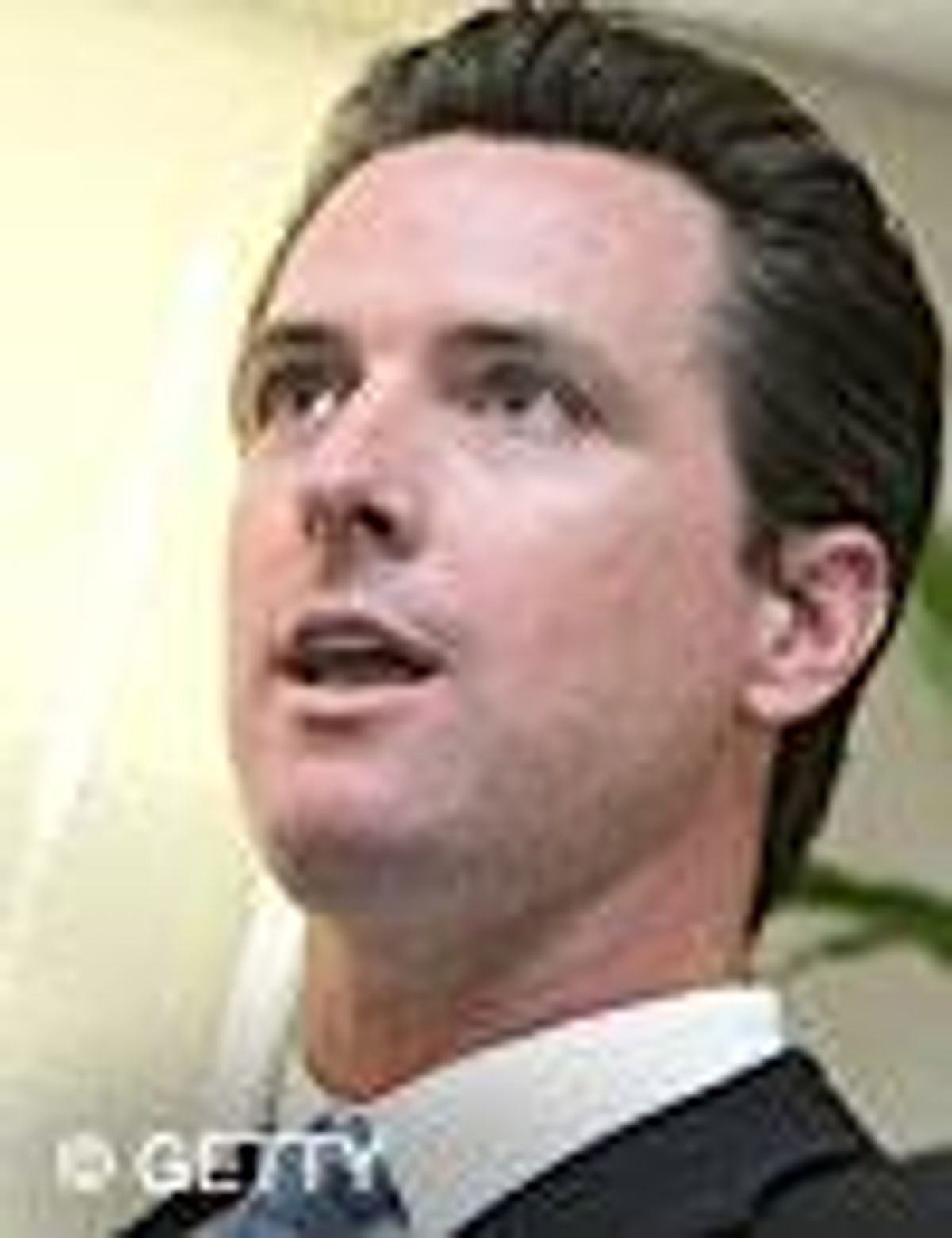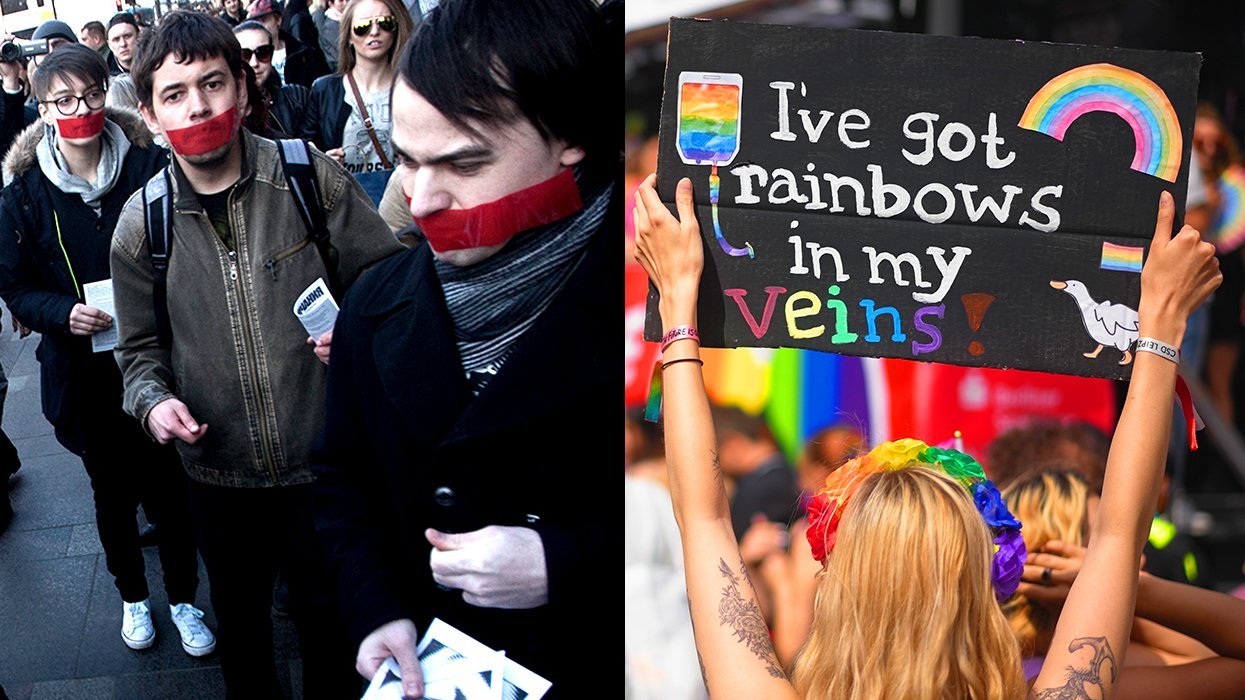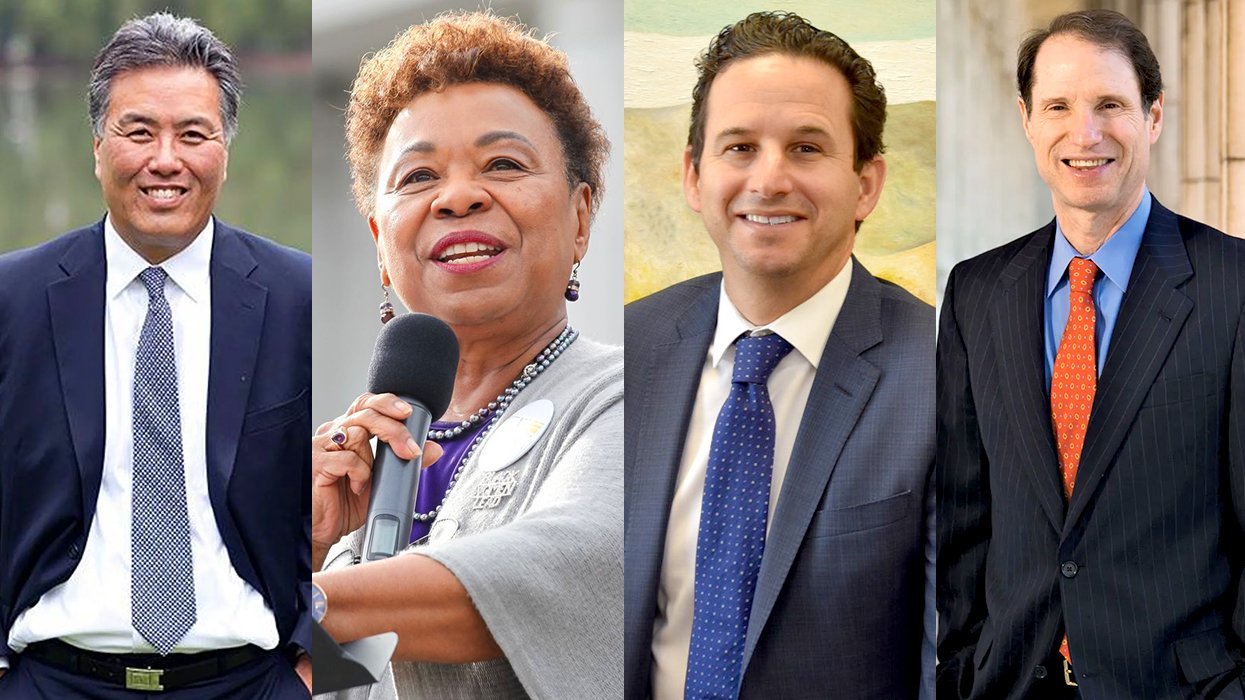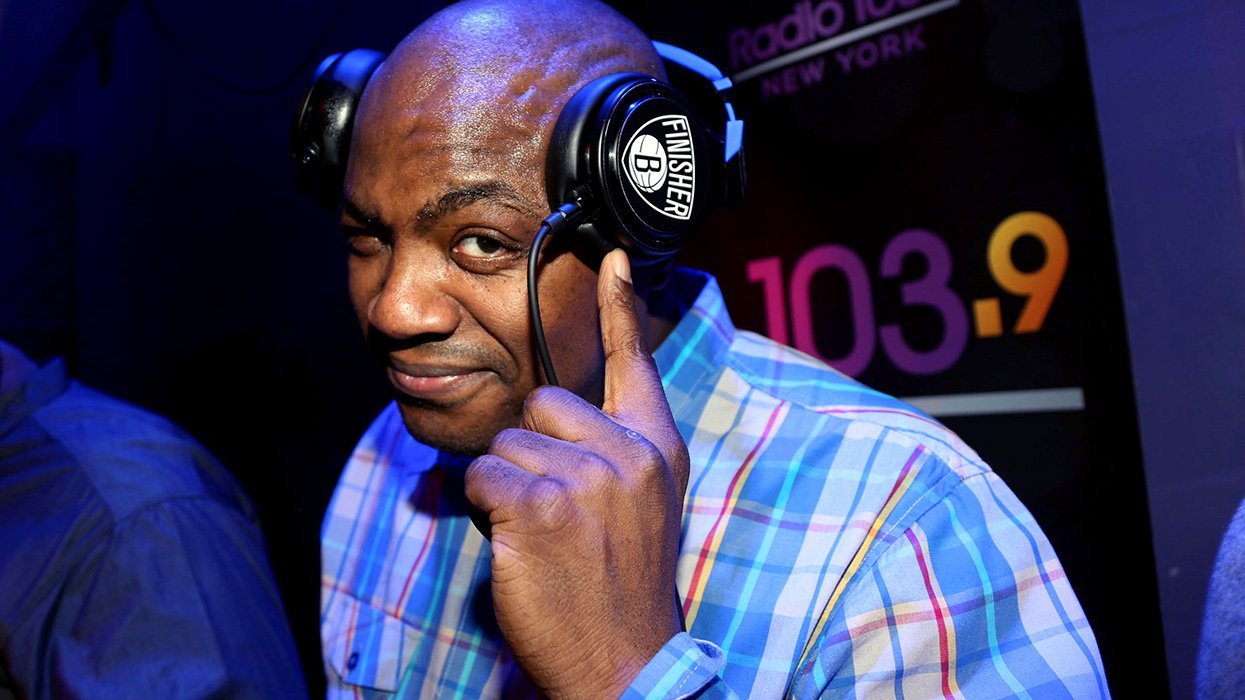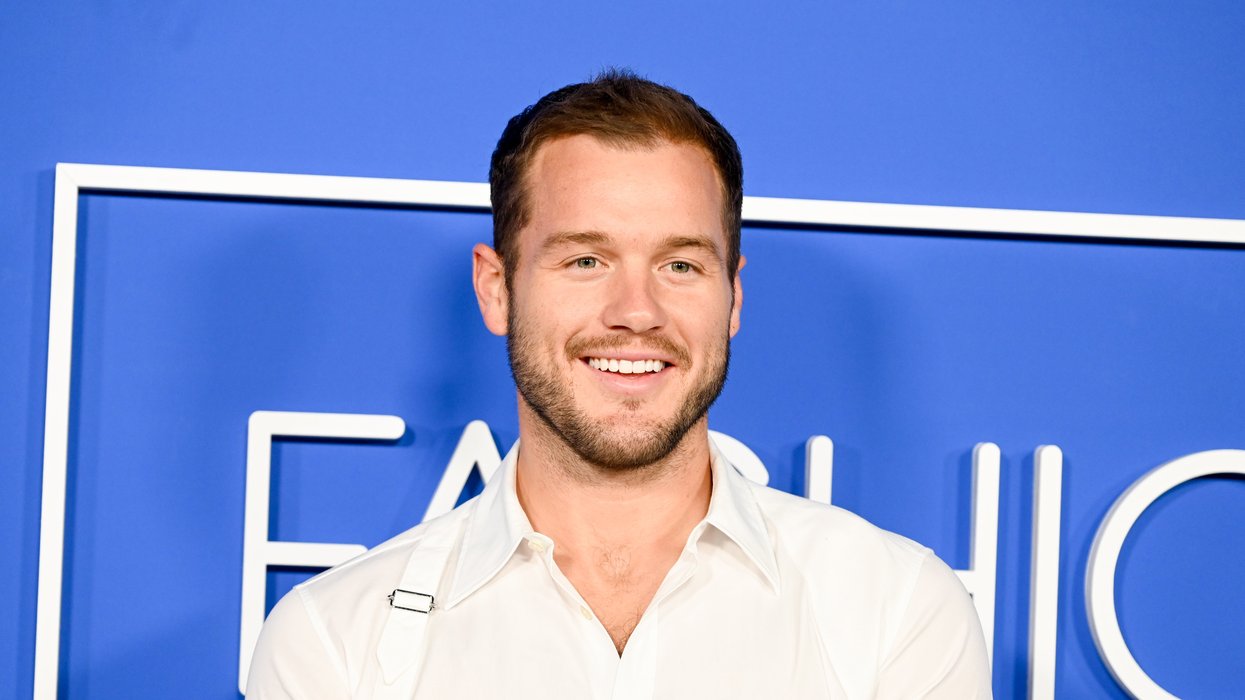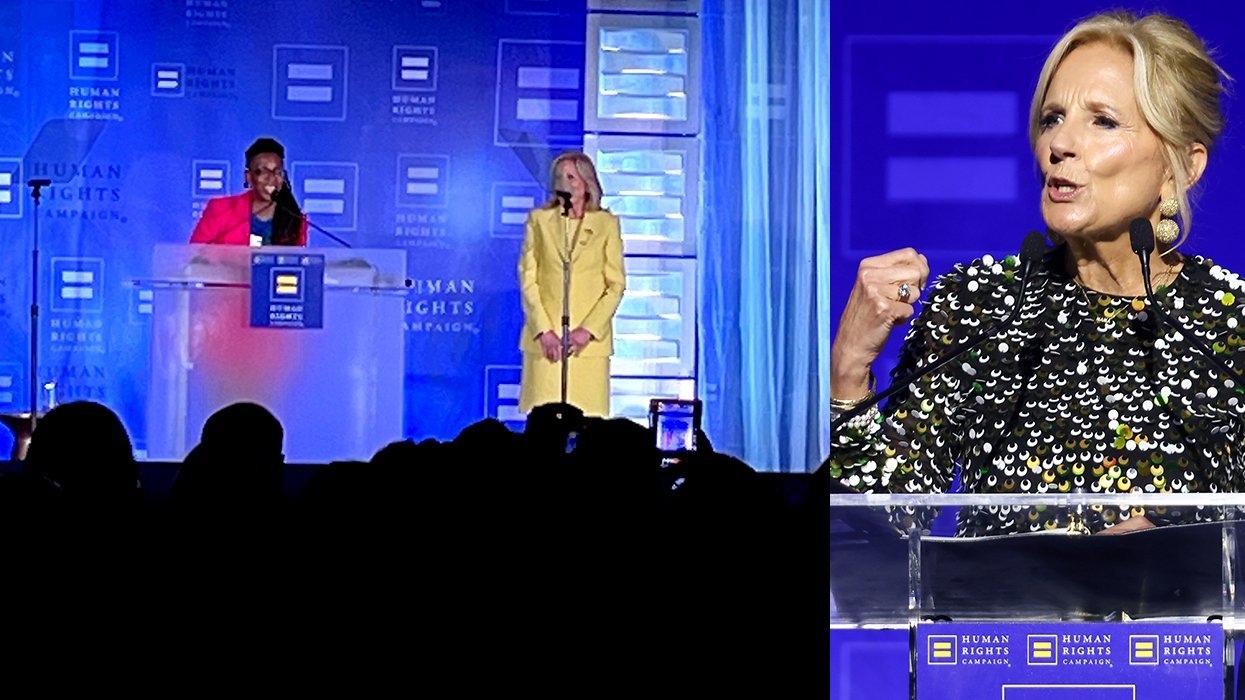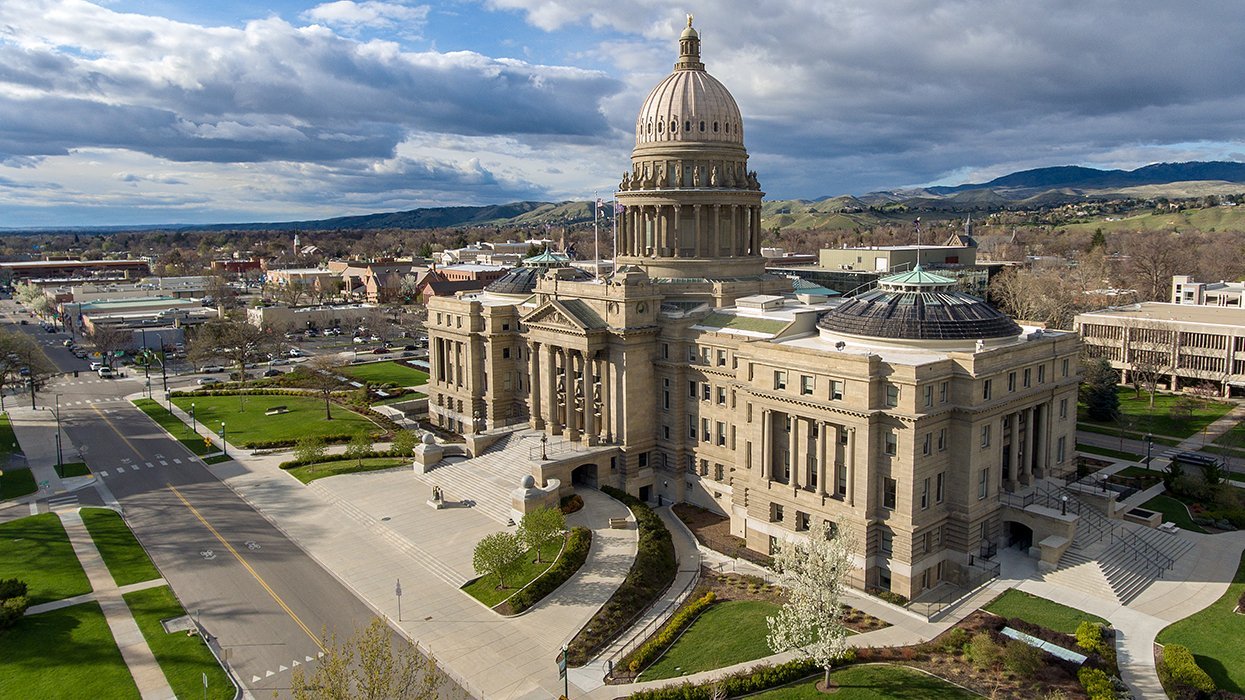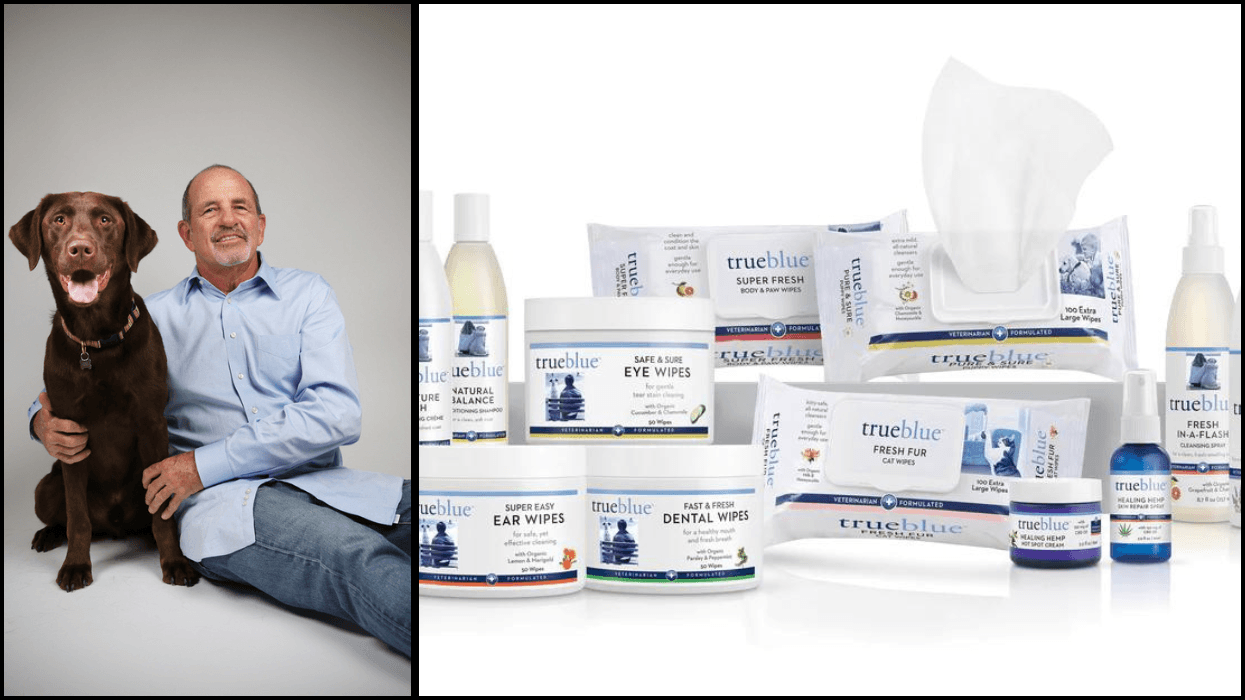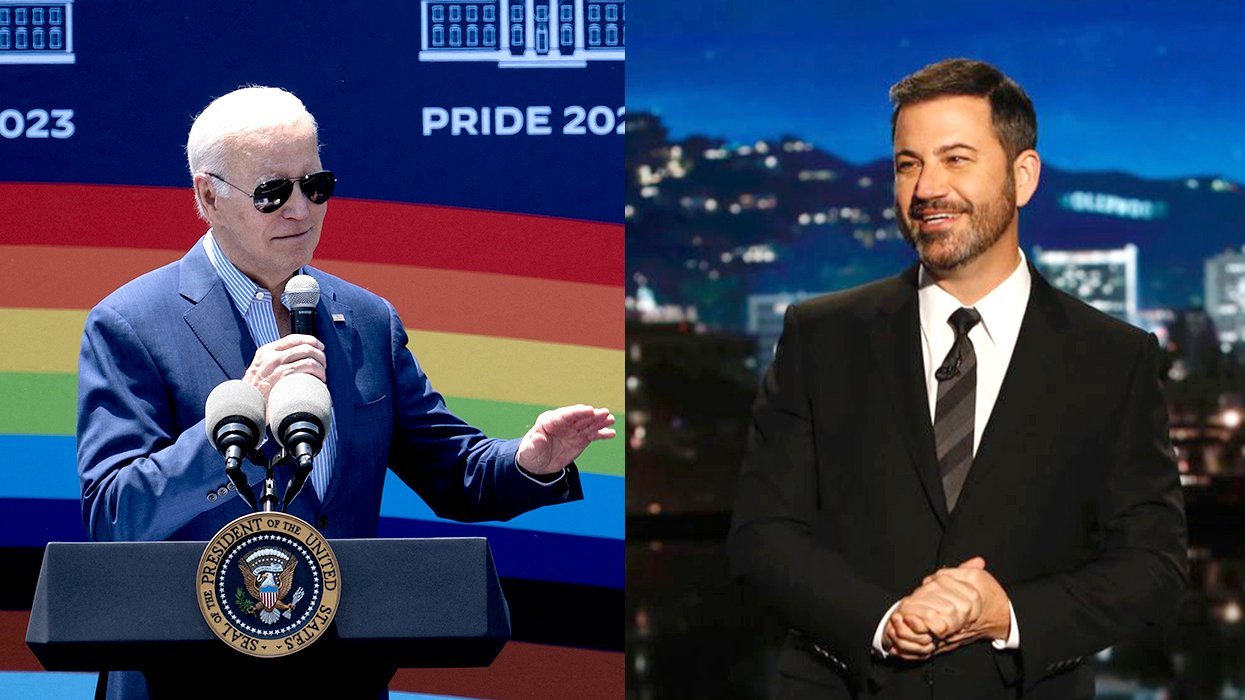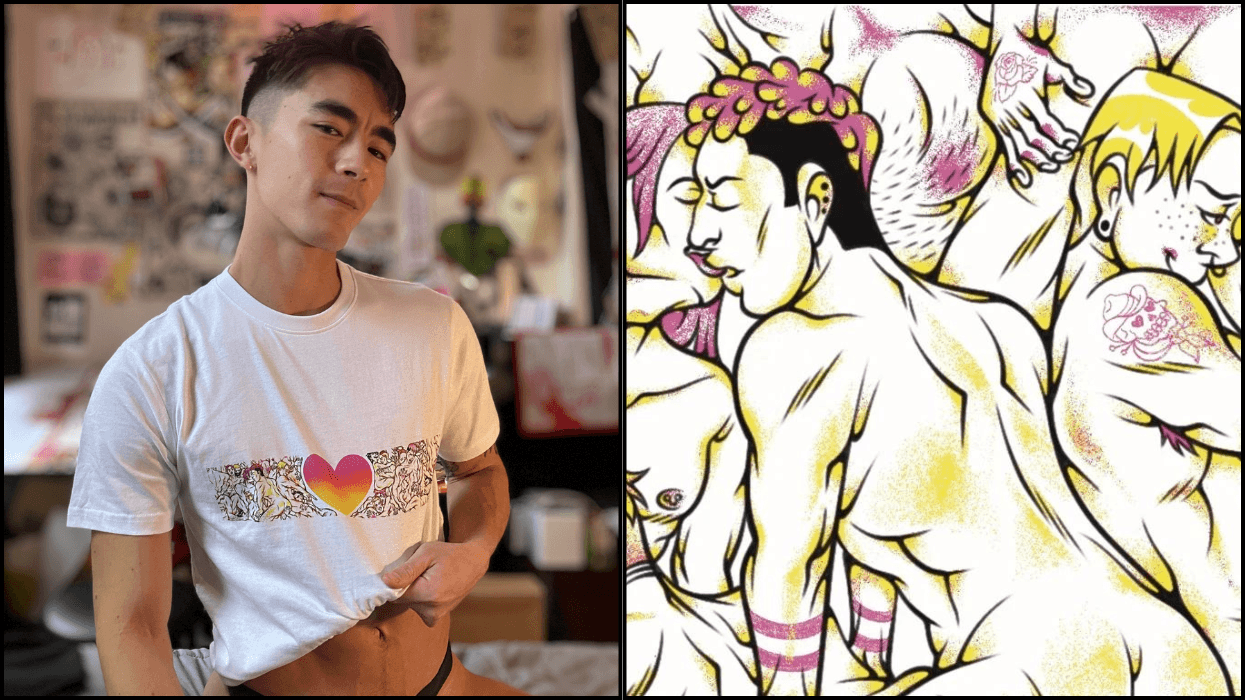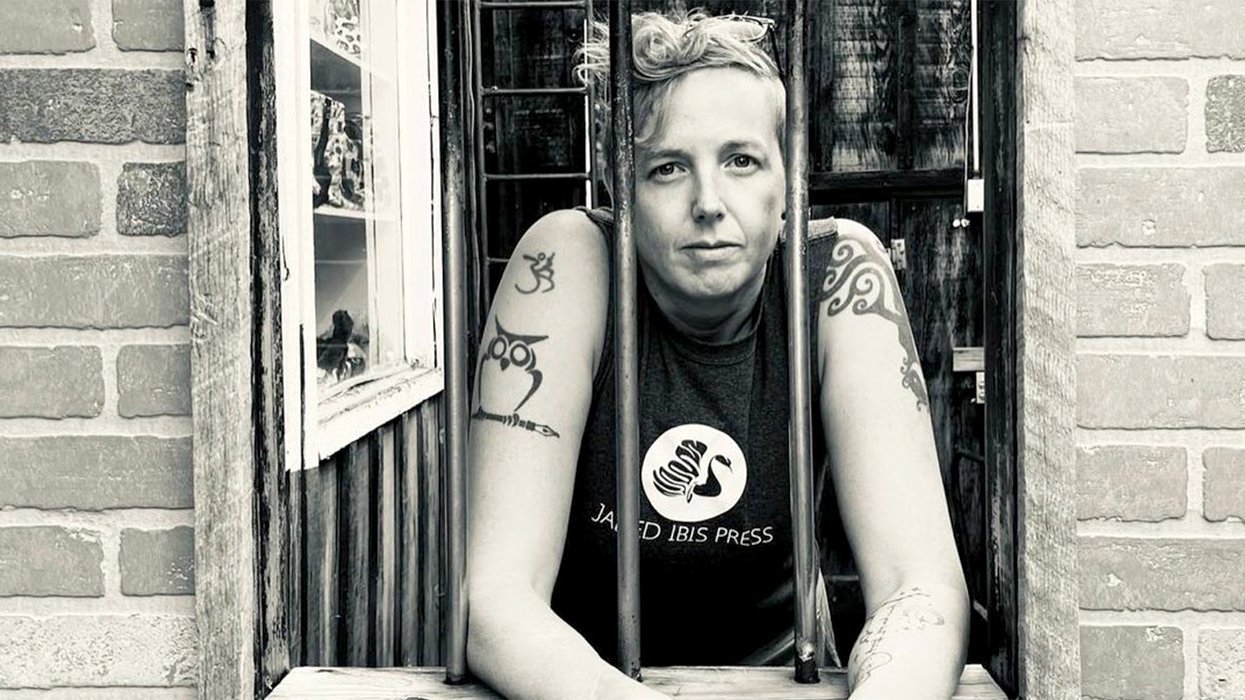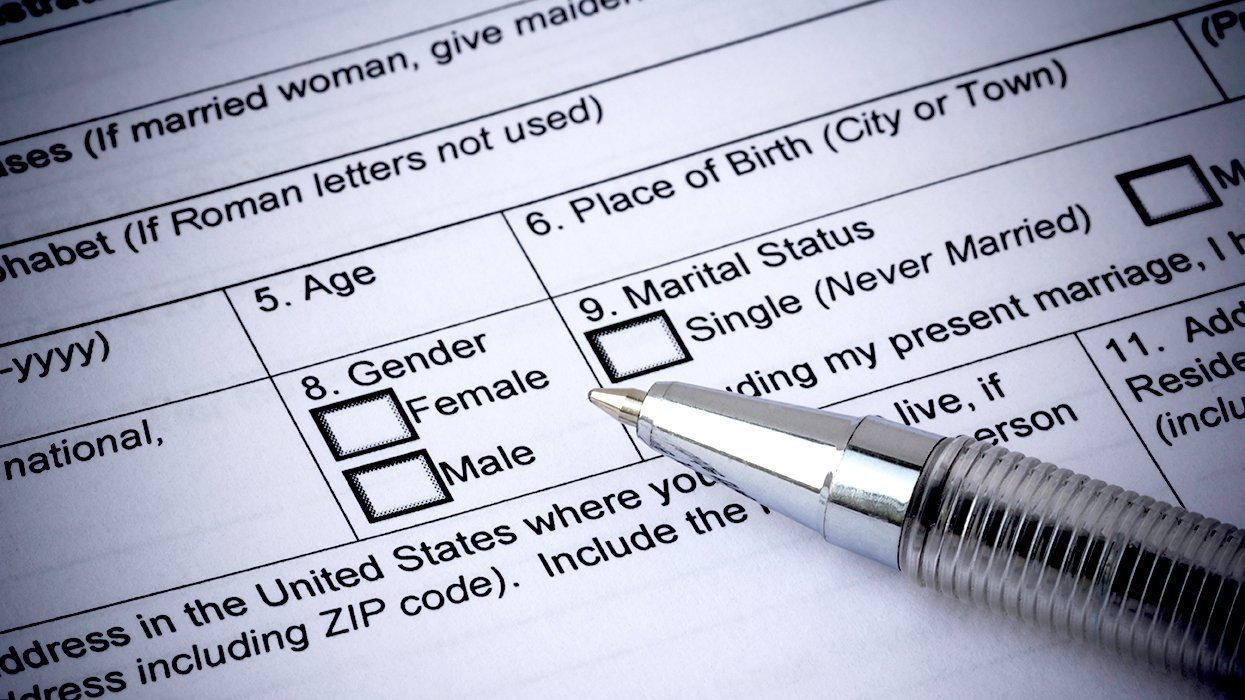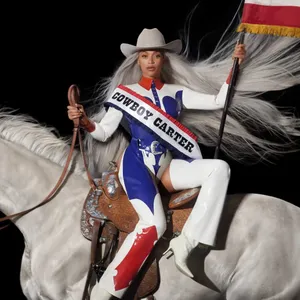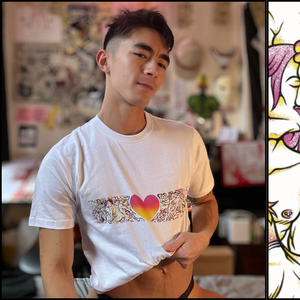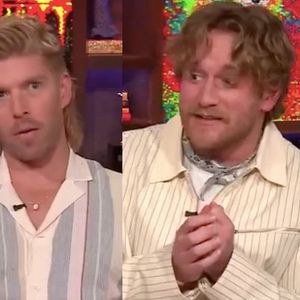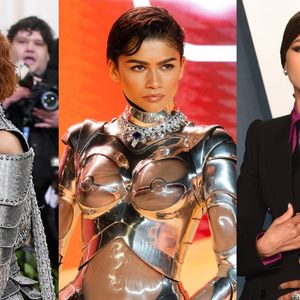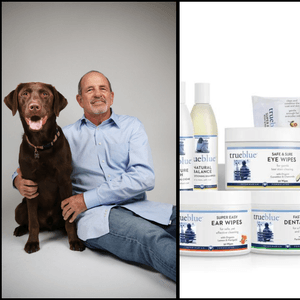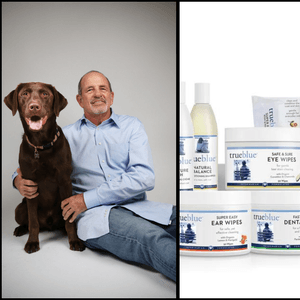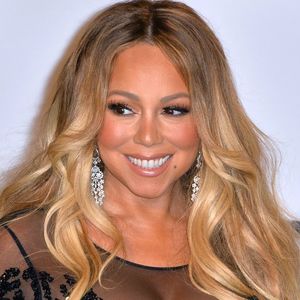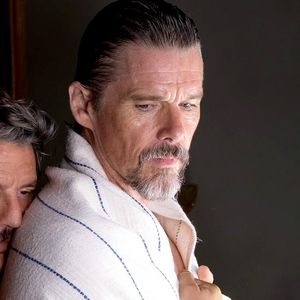Eight months
after admitting he had a drinking problem and an affair with
a close aide's wife, San Francisco mayor Gavin Newsom stands
poised to win his second term without breaking a
sweat.
In any other
city, Newsom's personal problems could easily have ended his
political career. But in San Francisco they weren't enough
even to attract a serious challenger.
When hundreds of
the city's left-wing power brokers met in June to
nominate a candidate, no one could be persuaded to run
against Newsom, who is best-known for opening City
Hall to same-sex weddings six weeks into his first
term.
''The things that
Newsom has done wrong haven't really affected the
greater city,'' said political analyst David Latterman,
noting that the mayor's approval ratings have
consistently hovered around 70%. ''The fact is, he is
popular. He is not going to lose.''
It's not that
Newsom doesn't have competition on the ballot. In fact,
there are 11 challengers. But none is considered a credible
rival.
They include a
sex club owner, a homeless taxi driver, a nudist rights
advocate, and videographer Josh Wolf, who spent a
record-setting 226 days behind bars for refusing to
give federal investigators footage of a chaotic 2005
street protest.
The city's
leading alternative newspaper, the San Francisco
Bay Guardian, said the candidates were ''not exactly
a varsity squad,'' then endorsed Quintin Mecke, a
community activist making his first bid for elective
office.
The last time a
San Francisco mayor was positioned for such an easy
victory was 1983, when Dianne Feinstein ran without a
serious opponent. She is now California's senior U.S.
senator.
Newsom insists
he's not taking anything for granted and has maintained an
active campaign schedule. But he expects to spend less than
$2 million on his reelection, not even a third of what
he spent four years ago.
Election
officials predict a record low turnout, in part because the
district attorney and sheriff are also facing only token
opposition.
When his personal
problems emerged at the beginning of the year, few
observers would have predicted a cakewalk for Newsom, who at
36 became the city's youngest mayor in more than a
century after beating a fellow city supervisor in a
tighter-than-expected runoff.
''This was geared
up to be a different race than it's turned out to be,''
the mayor said in an interview at his cavernous campaign
headquarters, which was almost empty.
Newsom, an
entrepreneur who made a small fortune selling wine and
running restaurants, was considered conservative by
San Francisco standards when he was elected in
December 2003. In that race, he championed a get-tough
approach to panhandlers and the city's chronic homeless
problem.
The mayor, who
turned 40 last month, quickly disarmed many of his
left-wing critics -- and angered some Democratic Party
elders -- when he unilaterally directed the city to
issue marriage licenses to same-sex couples, a
violation of California law.
Over four weeks
in early 2004, more than 4,000 couples tied the knot
before the courts intervened and nullified the unions.
The mayor
solidified his liberal credentials over the next year when
he appointed women to lead the police and fire
departments, joined hotel workers on the picket line,
expanded a children's health insurance program to
cover young adults, and showed up at murder scenes in poor
neighborhoods.
But accusations
started mounting last year that he had become disengaged
from the workings of city government. His setbacks included
a decision by the San Francisco 49ers to move the
football team south to Santa Clara. And supervisors
twice voted to override the mayor's veto of a measure to
conduct more police foot patrols to curb the spiraling
murder rate.
Even Newsom's
allies wondered whether the mayor, who once rode the cable
cars in a baseball cap to get a tourist's-eye view of the
city, still had his heart in the job.
Then, on January
31, came the revelation that the chairman of his
reelection campaign had resigned after learning the mayor
had an affair with his wife, a city employee.
The mayor stood
before television cameras the next day and apologized for
his ''lapse in judgment.''
A week later, he
announced he was seeking counseling for an alcohol
problem, a tough proposition for someone who co-owns two
wineries.
''I'm glad I
stopped. It was the right thing. It's penance time, it's
clarity, it's refocusing, recalculating,'' he said.
Newsom said he
was surprised how quickly San Franciscans seemed to
forgive and forget. He said he used to refer to the affair
while campaigning among small groups -- ''I thought it
was the elephant in the room and I had to bring it
up'' -- until a donor sternly told him to stop talking
about it.
''People really
care so much more about today and tomorrow than they do
yesterday,'' he said. ''The capacity for renewal, or to
re-engage, is always there, and for me, it's a very
humbling and reinforcing thing.'' (Lisa Leff, AP)
